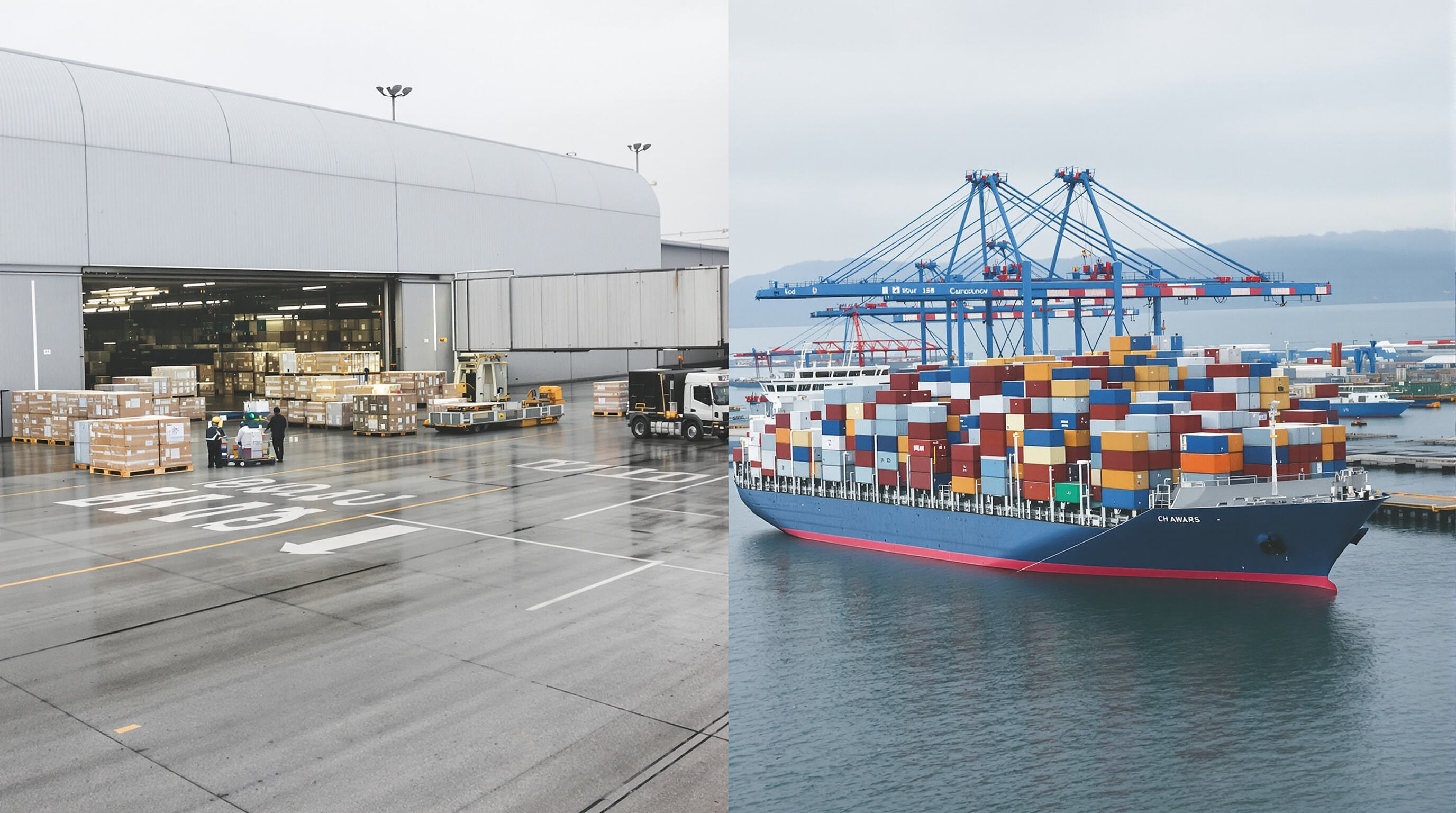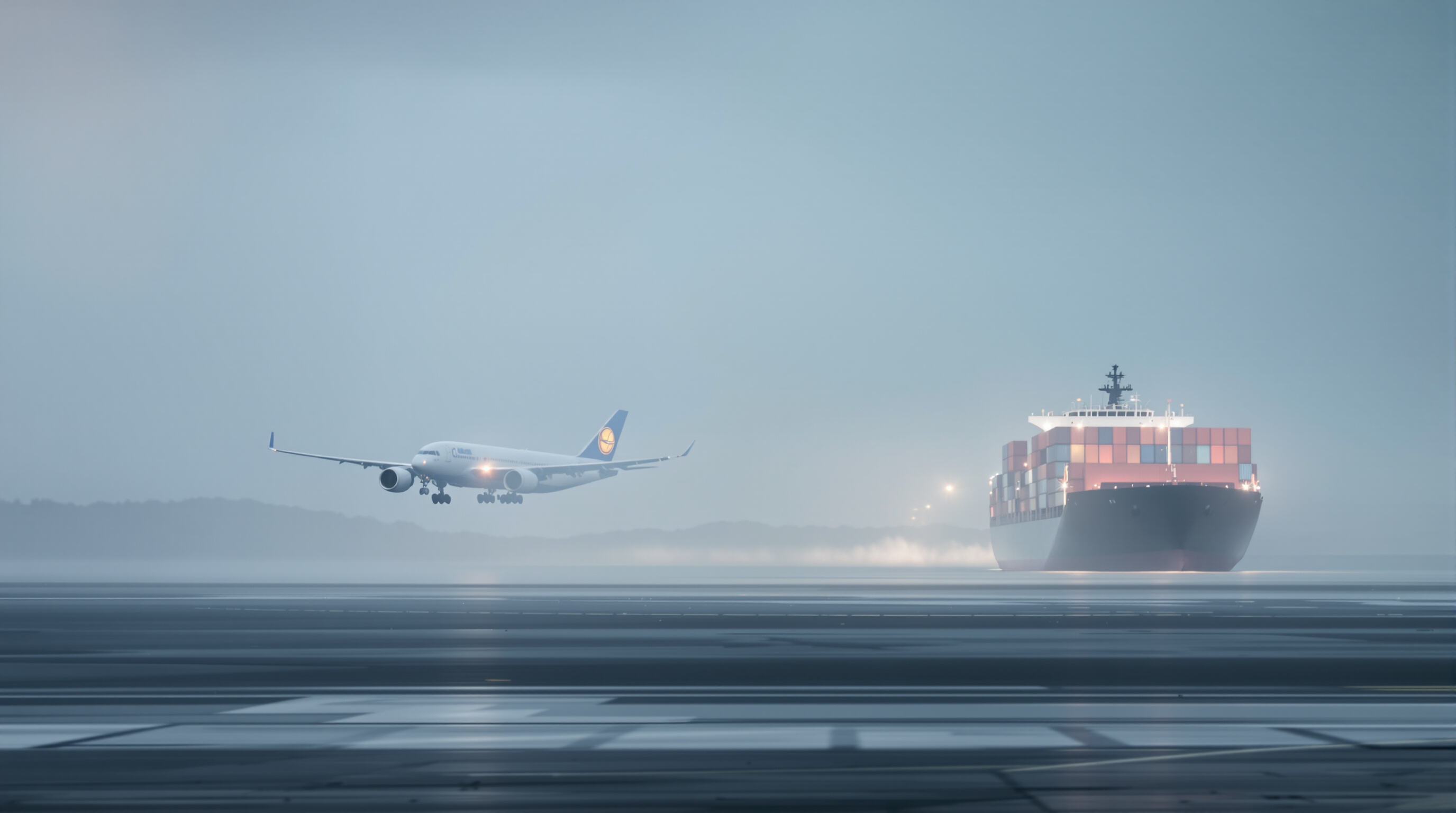Global trade is growing rapidly, and businesses are continuously searching for the most efficient and cost-effective ways to move goods internationally. For many companies, choosing between air freight forwarding and ocean freight forwarding can be a challenging decision. Each mode has its own strengths, limitations, and best-use scenarios.
At ORIENT GLOBAL FREIGHT FORWARDING Co., Ltd., we understand that selecting the right transportation method is critical to supply chain success. In this blog, we’ll compare air freight forwarders and ocean freight forwarders in detail, helping you identify which option is best suited to your business needs.
Understanding Freight Forwarding
Before diving into the differences between air and ocean freight, it’s important to understand what freight forwarding entails.
What Is a Freight Forwarder?
A freight forwarder is a logistics partner that manages the shipment of goods from one location to another, often across international borders. They coordinate with carriers, handle documentation, manage customs clearance, and ensure the shipment arrives on time and in good condition.
The Role of Freight Forwarders in Global Trade
Freight forwarders bridge the gap between shippers and carriers. They use their expertise and global networks to improve logistics operations, reduce risks, and offer cost-effective solutions. Without freight forwarders, navigating the complexities of international trade would be overwhelming for most businesses.
Air Freight Forwarding: Speed and Reliability
Air freight forwarding is the preferred choice for companies that prioritize speed, reliability, and reduced risk of delays.
Advantages of Air Freight Forwarding
-
Speed of Delivery
Air freight is much faster than ocean freight. While shipping by sea can take weeks, air freight can deliver goods within a matter of days. For time-sensitive shipments, air freight is the clear winner.
-
Reliability and Frequency
Airlines typically operate on regular schedules, offering multiple flights daily to major destinations. This reliability reduces delays and ensures goods reach markets on time.
-
Enhanced Security
Airports maintain strict security standards, lowering the risk of theft or damage. High-value, fragile, or sensitive goods often benefit from the added security of air freight.
-
Global Reach
Air freight forwarders can connect even remote markets, making it ideal for companies expanding into new international territories.
Limitations of Air Freight Forwarding
-
Higher Costs: Air freight is more expensive due to fuel, handling, and capacity costs.
-
Weight and Size Restrictions: Heavy or bulky shipments are often impractical for air transport.
-
Environmental Concerns: Air transport has a higher carbon footprint compared to sea freight.
Ocean Freight Forwarding: Cost and Capacity
For businesses focused on affordability, scalability, and bulk shipping, ocean freight forwarding is a strong choice.
Advantages of Ocean Freight Forwarding
-
Cost-Effective for Large Volumes
Shipping by sea is much cheaper when transporting large volumes of goods. Ocean freight offers excellent value, especially for businesses moving bulk or oversized cargo.
-
High Capacity
Container ships can carry enormous loads, accommodating everything from raw materials to fully assembled vehicles.
-
Flexibility in Cargo Types
Ocean freight is well-suited for transporting dangerous goods, heavy machinery, or irregularly shaped items that cannot fit in aircraft.
-
Eco-Friendlier Option
Per unit of cargo, ocean freight has a lower environmental impact than air transport, making it a greener choice for sustainable supply chains.
Limitations of Ocean Freight Forwarding
-
Slower Transit Times: Ocean freight can take several weeks, making it unsuitable for urgent shipments.
-
Weather-Related Delays: Ocean shipments are more vulnerable to weather conditions and port congestion.
-
Complex Customs and Documentation: Sea freight often requires extensive paperwork, which can delay shipments if not handled correctly.
Air vs. Ocean Freight: Key Considerations
To choose the right freight forwarding method, businesses must evaluate several critical factors.
1. Delivery Time Requirements
-
Air Freight: Best for urgent or time-sensitive shipments.
-
Ocean Freight: Suitable for shipments with flexible delivery timelines.
2. Budget Constraints
-
Air Freight: Higher upfront costs but ensures fast delivery.
-
Ocean Freight: Lower costs, ideal for businesses prioritizing affordability.
3. Cargo Type and Volume
-
Air Freight: Preferred for smaller, high-value, or fragile goods.
-
Ocean Freight: Recommended for bulky, heavy, or non-perishable cargo.
4. Environmental Impact
-
Air Freight: Higher emissions but necessary for speed-critical supply chains.
-
Ocean Freight: More sustainable option for eco-conscious businesses.

When to Choose an Air Freight Forwarder
Air freight forwarding is the right choice if your business needs:
- Fast delivery for perishable or seasonal products.
- Secure transport for high-value goods like electronics or jewelry.
- Frequent and reliable schedules for consistent supply chains.
- Access to remote or landlocked markets with limited seaport access.
When to Choose an Ocean Freight Forwarder
Ocean freight forwarding is ideal for companies that require:
- Cost savings on large shipments or heavy cargo.
- Transport of oversized or irregularly shaped items.
- Regular replenishment of stock without strict deadlines.
- Environmentally friendly logistics solutions.
Combining Air and Ocean Freight: A Hybrid Approach
Many businesses find that the best solution is not to choose one over the other but to combine both methods.
Advantages of a Hybrid Strategy
-
Cost Optimization: Use ocean freight for bulk shipments and air freight for urgent orders.
-
Risk Mitigation: Diversify shipping methods to minimize supply chain disruptions.
-
Flexibility: Adapt to market demand by switching between air and ocean freight.
Example Scenario
A retailer might ship most of its products by sea to save on costs but use air freight for limited-edition or seasonal items that need to reach stores quickly.
How ORIENT GLOBAL FREIGHT FORWARDING Co., Ltd. Can Help
Choosing between air and ocean freight can be complex, but partnering with an experienced freight forwarder simplifies the decision.
Our Expertise
At ORIENT GLOBAL FREIGHT FORWARDING Co., Ltd., We offer comprehensive logistics solutions built around your needs. Whether you prioritize speed, cost savings, or sustainability, our team can design the optimal freight forwarding strategy for your business.
Our Services Include:
- Air freight forwarding with global airline partnerships.
- Ocean freight forwarding with access to major shipping lines.
- Customs clearance and documentation support.
- End-to-end supply chain management.
- Logistics solutions designed for diverse industries.
Conclusion
The choice between air freight forwarding and ocean freight forwarding essentially depends on your business’s priorities. If speed, reliability, and security are top priorities, air freight may be the best fit. If cost savings and large-volume shipping are more important, ocean freight will deliver better value.
At ORIENT GLOBAL FREIGHT FORWARDING Co., Ltd., we help businesses navigate these choices with confidence. By understanding your goals, budget, and timelines, we create logistics solutions designed to keep your supply chain efficient and competitive.
Whether you choose air, ocean, or a hybrid approach, having a trusted freight forwarder by your side ensures smoother operations and greater peace of mind in global trade.



 Hot News
Hot News